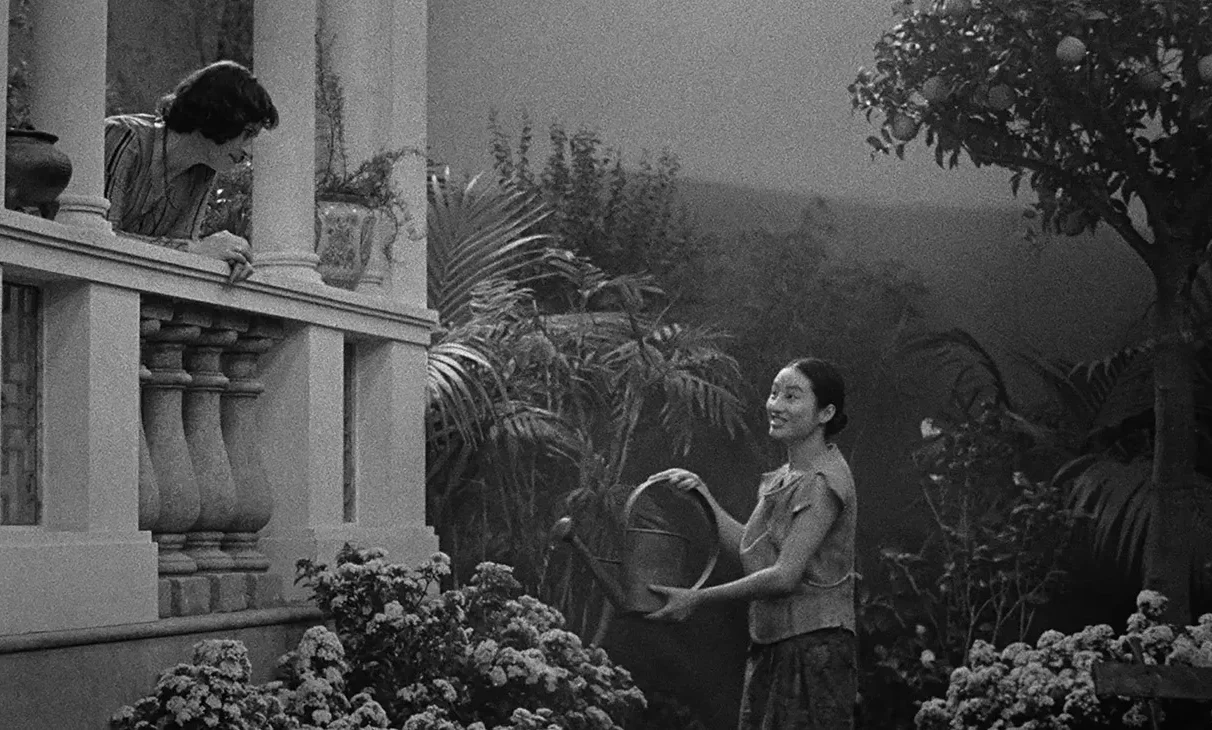Grand Tour

The prize for Best Direction at the 77th edition of Cannes was awarded to Portuguese filmmaker Miguel Gomes (Tabu, Arabian Nights) for his offbeat travelogue Grand Tour. Its story is set in 1917 and revolves around imperial servant Edward, who flees from his planned wedding to Molly, and his fiancée, who promptly decides to follow his grand tour across the Asian continent.
Like its two protagonists, the film’s narrative style is semi-detached and displaced. A quite descriptive voice-over narrates events in a way that doesn’t quite line up with the images, but sometimes provides the explanations leading up to what is seen on screen. This takes some getting used to, but it is worth sticking with the feature, even if one doesn’t feel immediately reeled in by the first few minutes.
While Edward wanders aimlessly, Molly has a set goal, and as such the two strands offer a vastly different viewing experience. With an almost childlike curiosity and bemusement at Edward’s behaviour, Molly is the more engaging of the two characters, and the movie picks up its pace in the second hour when focus is placed on her journey. This new lightness is also reflected by sudden comedic choices, such as a ranting train passenger’s expletives being bleeped out. Unfortunately, this joke is used once too often in the same breath to remain funny. Similarly, the actress portraying Molly has equipped her with a distinctive laugh-snort, which turns from charming to tedious the more one is presented with it, making the viewer fall out of love with her at some point. One is left wondering whether this was intentional in order for the viewer to come to understand Edward’s actions.
When they are not zoomed in on the characters, the visuals document the world they come in contact with, whether directly or indirectly: modes of transport, nature, wild (panda bears in trees, monkeys in hot springs) or domesticated animals, bustling cities, startling anachronisms. Grand Tour plays with the expected exoticisation by its colonial travellers. While the images are largely held in black and white, colour is an interwoven element and in one shot, a superimposition of one over the other.
While the make-up of Grand Tour requires some getting used to, the film has no shortage of things to offer. Speaking to viewers in equal measures travel memoir and love story, Gomes’s latest work first and foremost employs a grand exploration of the elusive.
Selina Sondermann
Grand Tour does not have a release date yet.
Read more reviews from our London Film Festival coverage here.
For further information about the event visit the London Film Festival website here.

























Facebook
Twitter
Instagram
YouTube
RSS